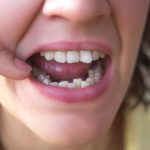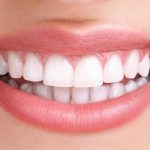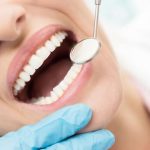Rehydrate Your Teeth After Whitening: Tips and Tricks

Having a set of pearly white teeth is a dream that many people share. While there are several ways to achieve this, teeth whitening is one of the most popular methods. It involves using products that contain bleaching agents to remove stains and discoloration from the teeth. While teeth whitening can give you the smile you’ve always wanted, it can also leave your teeth feeling dehydrated and sensitive. This is why it is essential to rehydrate your teeth after whitening to maintain their health and prevent any damage. Rehydrating your teeth after whitening involves restoring the moisture that was lost during the whitening process. This can be done by using specific products or making some lifestyle changes. In this article, we will discuss some tips and tricks that you can use to rehydrate your teeth after whitening. Whether you’ve just undergone a whitening treatment or you plan to do so in the future, this article will provide you with valuable information to ensure that your teeth remain healthy and hydrated.
Teeth whitening is a cosmetic dental procedure that involves the use of various techniques to remove stains and discoloration from the surface of teeth. The most common method of teeth whitening is through the use of bleaching agents such as hydrogen peroxide or carbamide peroxide. These agents penetrate the enamel and break down the molecules that cause staining. Teeth whitening can have a significant impact on the appearance of teeth, making them appear brighter and more youthful. However, it is important to note that excessive use of teeth whitening agents can cause damage to the enamel and increase tooth sensitivity. Proper hydration and maintenance of oral hygiene are essential to maintain the health and appearance of teeth after teeth whitening.
After undergoing a teeth whitening treatment, it is crucial to rehydrate your teeth. This is because the chemicals used in the whitening process can dehydrate the teeth, leaving them more susceptible to sensitivity and damage. Rehydration helps to replenish the moisture in the teeth, which can prevent discomfort and promote overall oral health. Drinking plenty of water is an easy way to rehydrate your teeth, but there are also specialized products, such as remineralizing gels and toothpastes, that can help replenish lost minerals and strengthen the enamel. Neglecting to rehydrate your teeth after whitening can lead to long-term damage, so it is important to take the necessary steps to maintain your oral health.
Drink Plenty of Water
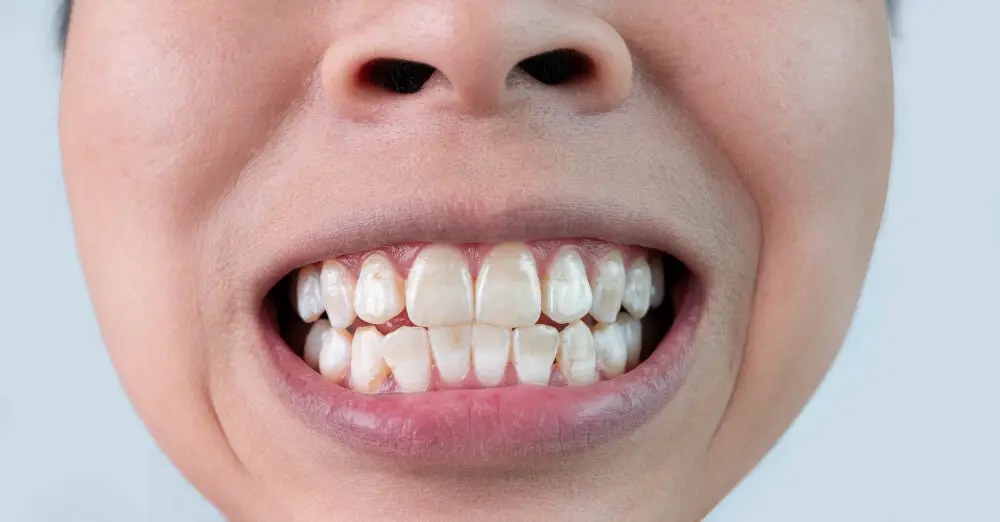
Proper hydration is crucial for maintaining overall health, and it’s no different when it comes to oral health. Drinking plenty of water is one of the simplest yet most effective ways to rehydrate your teeth after whitening. Water flushes out toxins and helps neutralize acids in the mouth, which can lead to tooth decay and erosion. When you drink water, it also helps to rinse away any residual whitening products that may still be lingering in your mouth. Moreover, water is a natural way to increase saliva production, which is essential for oral health. Saliva helps to neutralize acids and wash away food particles, reducing the risk of cavities and gum disease. Additionally, drinking water throughout the day can help prevent dry mouth, a condition that can cause bad breath, tooth decay, and other dental problems. So, remember to drink plenty of water to keep your teeth healthy and hydrated after whitening.
Water is a natural and effective way to rehydrate teeth after whitening. When teeth are exposed to whitening products, they can become dehydrated, making them more prone to sensitivity and damage. Drinking water helps to replenish the moisture in teeth, reducing the likelihood of these issues. Additionally, water helps to wash away any remaining whitening products or residue that may be left on the teeth. This can prevent further damage and improve the overall health and appearance of the teeth. Drinking water regularly, especially after whitening treatments, can help to keep teeth hydrated and healthy.
After undergoing teeth whitening, it is essential to rehydrate your teeth to maintain their health and prevent potential damage. One of the most effective ways to do this is by drinking an adequate amount of water. It is recommended to drink at least eight glasses of water per day, but after whitening, it is advisable to increase your water intake. Drinking water helps to flush out any remaining bleach or chemicals from the whitening process, preventing them from settling into the teeth’s pores and causing sensitivity or damage. Furthermore, water promotes saliva production, which is essential for maintaining oral health and preventing dry mouth. Therefore, keeping your teeth hydrated by drinking enough water is crucial after whitening to ensure the results last longer and your teeth remain healthy.
Staying hydrated is key to maintaining overall health, but it can also be beneficial for your oral health. If you’re looking to increase your water intake, there are a few tips that can help. First, carry a reusable water bottle with you throughout the day to make it easier to sip on water. Additionally, try infusing your water with fruit or herbs to add flavor and make it more enjoyable to drink. You can also set reminders on your phone or computer to prompt you to drink water at regular intervals. Finally, make sure to drink water before, during, and after meals to aid in digestion and keep your mouth hydrated. By following these simple tips, you can increase your water intake and promote optimal oral health.
Use a Fluoride Mouthwash

Using a fluoride mouthwash after teeth whitening is a great way to rehydrate your teeth and keep them healthy. Fluoride is a natural mineral that helps to strengthen the enamel on your teeth and protect them from decay. The mouthwash works by coating your teeth with a thin layer of fluoride, which helps to remineralize any weakened areas and prevent further damage. This is especially important after teeth whitening, as the process can sometimes leave your teeth feeling a little sensitive. By using a fluoride mouthwash, you can help to reduce any discomfort and keep your teeth looking and feeling their best. In addition to its protective benefits, using a fluoride mouthwash can also help to freshen your breath and improve your overall oral hygiene. It works by killing bacteria in your mouth and preventing the buildup of plaque and tartar. This can help to prevent cavities and gum disease, and leave your mouth feeling clean and fresh. So, if you’re looking to keep your teeth healthy and hydrated after teeth whitening, be sure to incorporate a fluoride mouthwash into your daily routine.
Fluoride is a mineral that can help rehydrate teeth after whitening. When teeth are exposed to peroxide-based whitening agents, their enamel becomes more porous and dehydrated, which can lead to tooth sensitivity and discomfort. Fluoride works by remineralizing the enamel and restoring its strength and hydration. It helps to rebuild the weakened areas of the enamel by attracting minerals such as calcium and phosphate, which are essential for tooth structure. Additionally, fluoride can make the enamel more resistant to acid attacks from bacteria, preventing decay and cavities. Therefore, incorporating fluoride into your oral hygiene routine can help to rehydrate and protect your teeth after whitening.
When it comes to maintaining good oral hygiene, using fluoride mouthwash is an essential step. Fluoride helps to strengthen the enamel of your teeth, making them more resistant to decay and damage. Some of the best brands of fluoride mouthwash on the market include Listerine, Crest, and ACT. Listerine is a popular choice due to its powerful antiseptic properties, which help to kill germs and bacteria that can cause bad breath and gum disease. Crest is another great option, as it contains a high concentration of fluoride to protect your teeth from decay. ACT is a fluoride mouthwash that is specifically designed for those with sensitive teeth, as it helps to reduce sensitivity while still providing excellent protection against cavities. No matter which brand you choose, be sure to use fluoride mouthwash as part of your daily oral hygiene routine to keep your teeth healthy and strong.
Fluoride mouthwash can be an effective tool in maintaining good oral health, but it’s important to use it properly. First, make sure to brush and floss your teeth before using the mouthwash to remove any food particles or plaque. Then, swish the mouthwash around your mouth for at least 30 seconds, making sure to reach all areas of your mouth, including the back of your tongue. Spit out the mouthwash and avoid rinsing your mouth with water afterward to allow the fluoride to continue working on your teeth. It’s also important to avoid eating or drinking anything for at least 30 minutes after using the mouthwash to give the fluoride enough time to be absorbed by your teeth. Finally, make sure to use a fluoride mouthwash that is appropriate for your age and dental needs, and follow the instructions on the label carefully.
Avoid Acidic Foods and Drinks
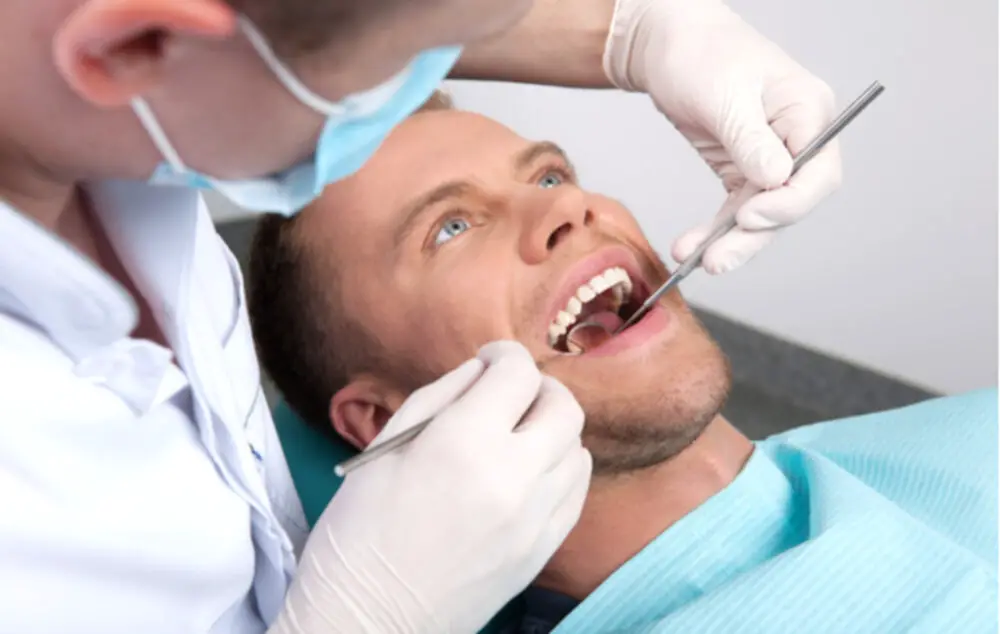
Acidic foods and drinks can be detrimental to the health of your teeth, especially after a teeth whitening treatment. The acid in these foods and drinks can erode the enamel of your teeth, making them more susceptible to staining and discoloration. Some common acidic foods and drinks include citrus fruits, tomatoes, vinegar, soft drinks, and sports drinks. If you want to maintain the brightness of your teeth after a whitening treatment, it’s important to avoid these types of foods and drinks, or at the very least, consume them in moderation. To protect your teeth from acidic damage, you can also try rinsing your mouth with water after consuming acidic foods and drinks. This will help to neutralize the acid and wash it away from your teeth. Additionally, you may want to consider using a toothpaste that is specifically designed to protect your teeth from acid erosion. These toothpastes contain ingredients like fluoride and calcium that can help to strengthen your tooth enamel and protect it from damage. By taking these simple steps, you can maintain a bright, healthy smile long after your whitening treatment.
Acidic foods and drinks such as citrus fruits, soda, and sports drinks can worsen teeth sensitivity by eroding the protective layer of enamel on the teeth. When the enamel wears down, the underlying dentin layer is exposed, which contains microscopic tubules that lead to the nerves of the teeth. This exposure can cause pain and sensitivity when consuming hot, cold, sweet, or acidic foods and drinks. The acidic substances can also further damage the enamel, leading to tooth decay and other dental problems. To prevent worsening teeth sensitivity, it is important to limit consumption of acidic foods and drinks and to drink water after consuming them to help neutralize the acid in the mouth.
After undergoing a teeth whitening treatment, it is important to avoid consuming acidic foods and drinks that can prolong and worsen tooth sensitivity. Some of the acidic foods and drinks that should be avoided include citrus fruits, juices, and sodas, as well as vinegar-based dressings, pickles, and tomato-based products. In addition, alcoholic and carbonated beverages should be avoided, as they can cause dehydration and increase the risk of tooth sensitivity. Overall, it is recommended to stick to a diet of neutral or alkaline foods and drinks such as water, milk, bananas, potatoes, and whole grains to help rehydrate and protect your teeth after whitening.
If you are looking to rehydrate your teeth after whitening, it’s important to consider alternatives to acidic foods and drinks. While citrus fruits and sodas may be refreshing, they can erode your tooth enamel and make your teeth more sensitive. Instead, try incorporating more water-rich foods like cucumber, watermelon, and celery into your diet. These foods not only help rehydrate your body but also stimulate saliva production, which can help neutralize acids in your mouth. Additionally, dairy products like milk and cheese can help strengthen your teeth and neutralize acids thanks to their high calcium content. By making these simple dietary changes, you can help protect your teeth and keep them looking bright and healthy after whitening.
Apply a Desensitizing Gel

After undergoing a teeth whitening procedure, you may experience sensitivity in your teeth due to the bleaching agents used during the process. This sensitivity can be quite uncomfortable and may even hinder your ability to enjoy your favourite foods and drinks. However, there is a solution to this problem – desensitizing gels. These gels are designed to reduce sensitivity in your teeth and help you rehydrate them after the whitening process. They work by penetrating the enamel layer of your teeth and blocking the nerve endings that cause sensitivity. This makes them an excellent tool for anyone looking to maintain their beautiful white smile without experiencing any discomfort. When it comes to choosing a desensitizing gel, it’s important to look for one that contains ingredients like fluoride and potassium nitrate. These ingredients work together to help strengthen your enamel and reduce sensitivity in your teeth. Additionally, it’s important to follow the instructions carefully and apply the gel as directed. This will ensure that you get the maximum benefit from the product and that your teeth remain healthy and strong. With the help of a desensitizing gel, you can enjoy your newly whitened smile without having to worry about any discomfort or sensitivity.
Desensitizing gel is a type of dental product that is designed to reduce tooth sensitivity. It typically contains ingredients like potassium nitrate or fluoride that help to block pain signals from the nerves in your teeth. This gel can be applied to your teeth after a whitening treatment to help alleviate any discomfort or sensitivity that you may experience. The benefits of using a desensitizing gel include reducing tooth sensitivity, minimizing discomfort after a whitening treatment, and protecting your teeth from further damage. By using a desensitizing gel, you can ensure that your teeth stay healthy and strong, while also enjoying the benefits of a brighter, whiter smile.
If you experience sensitivity after teeth whitening, desensitizing gels can be a lifesaver. There are many brands on the market, but some of the most recommended include Sensodyne, Crest 3D White, and Opalescence. Sensodyne is a well-known brand for toothpaste that helps to relieve sensitivity, but they also have a desensitizing gel that can be applied directly to the teeth. Crest 3D White offers a desensitizing gel pen that is easy to use and can be applied directly to sensitive areas. Opalescence is a professional-grade gel that can be applied at home and is also recommended by dentists. It’s essential to follow the instructions carefully when using these products to ensure they are effective and safe.
Desensitizing gel is a great way to reduce the discomfort and sensitivity caused by teeth whitening. To use it effectively, there are a few tips to keep in mind. First, make sure to apply the gel according to the instructions provided. Generally, you’ll want to apply a small amount of gel to each tooth, spreading it evenly with a brush or applicator. Next, leave the gel on for the recommended amount of time, usually around 10-15 minutes. Finally, rinse your mouth thoroughly with water and avoid eating or drinking anything for at least 30 minutes after application. By following these steps, you can minimize discomfort and maximize the benefits of your teeth whitening treatment.
After undergoing a teeth whitening treatment, it’s important to rehydrate your teeth to avoid sensitivity and discomfort. One of the most effective ways to do this is by drinking plenty of water, which helps to flush out any residual bleach and rehydrate your teeth. Additionally, you can use fluoride toothpaste and mouthwash to help re-mineralize your teeth and strengthen their enamel, while avoiding any staining foods or drinks for the first 24 to 48 hours post-treatment. Another helpful tip is to avoid brushing your teeth immediately after whitening, as this can lead to further sensitivity and enamel erosion. Instead, wait at least an hour before brushing and use a soft-bristled toothbrush to avoid damaging your tooth enamel. By following these simple tips and tricks, you can ensure that your teeth remain healthy, hydrated, and beautiful long after your whitening treatment is complete.
Maintaining a healthy and comfortable smile is essential for overall oral health and confidence. Following tips for teeth whitening is not enough if you want to achieve a bright and healthy smile. It is equally important to stay hydrated after teeth whitening, as it helps to prevent sensitivity and discomfort. Drinking plenty of water, avoiding acidic and sugary foods and beverages, and using fluoride toothpaste are some of the other tips that can help to maintain a healthy and comfortable smile. By following these tips, you can not only prevent dental problems but also boost your self-esteem and appearance. So, take care of your teeth and enjoy a beautiful smile that lasts a lifetime.
Conclusion

In conclusion, maintaining proper oral hygiene is crucial not only for the health of our teeth but also for their appearance. Teeth whitening is a popular cosmetic dental procedure that can give us a brighter smile. However, it is essential to take care of our teeth after the process to prevent dehydration and sensitivity. By following the tips and tricks mentioned in this article, we can rehydrate our teeth and maintain a healthy and radiant smile. Proper hydration, avoiding certain foods and drinks, and using desensitizing products are some of the ways to ensure that our teeth remain hydrated and healthy. Ultimately, by implementing these strategies, we can enjoy the benefits of teeth whitening without compromising our dental health.



